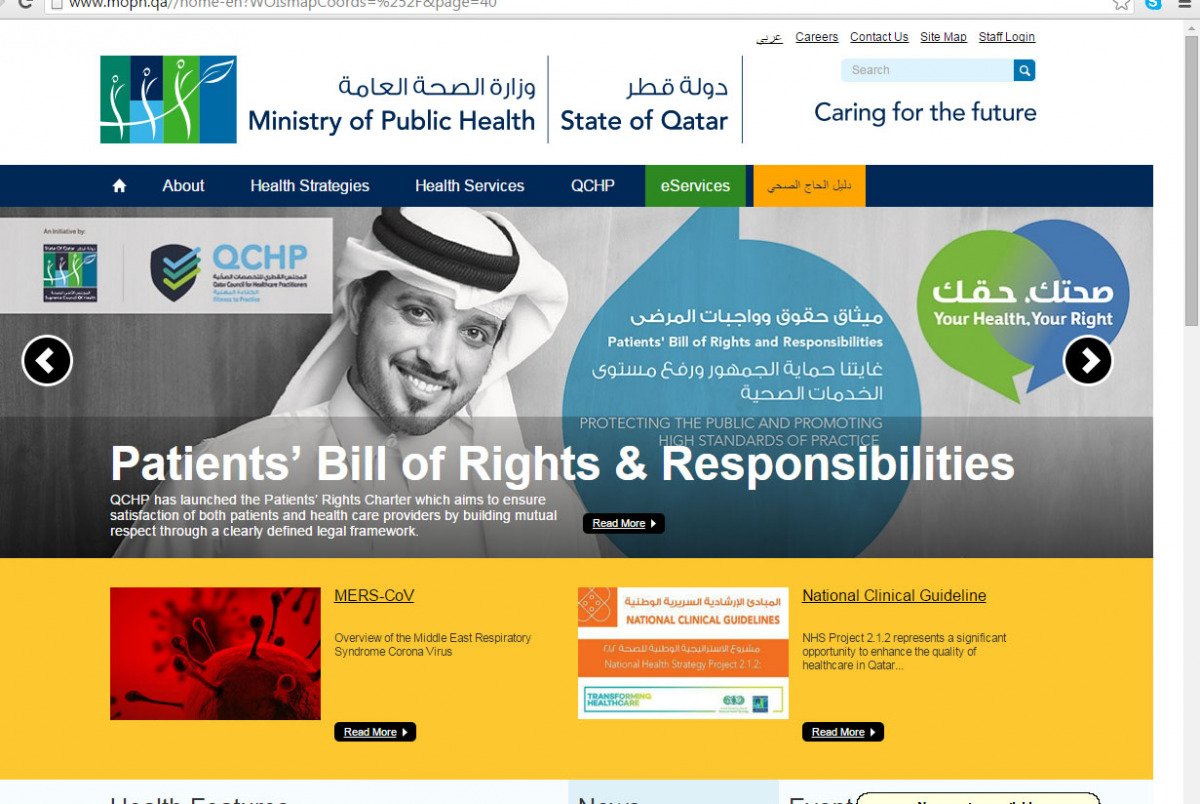

DOHA: Strict monitoring at different port of entries in the country has drastically reduced the volume of food imports that do not meet Qatari standards and specifications, shows 2015 data released by the Ministry of Public Health yesterday.
Of the total food imports during the year, the quantity of food that was rejected for violating health regulations amounted to a negligible 0.01 per cent, said the report.
During the year, the ministry inspectors monitored import of over 2.59 billion kilogrammes of food through different entry points including the Doha Port, Hamad International Airport, Abu Samra border post and the recently-opened Al Ruwais port.
Of the total imports, more than 2.53 billion kilogrammes of food were cleared and the remaining rejected (0.01 percent). Of the rejected consignments, over 2.15 million kilogrammes were returned while more than 2.9 million kilogrammes were destroyed after being found unfit for human consumption.
As part of the monitoring, the ministry collected 7,162 food samples from different shipments and sent to the central food laboratory for the necessary tests. Following the tests, 6527 samples were cleared and 635 samples rejected due to microbial and chemical infection.
Food consignments that were sent back included 1,392 cartons of frozen bread and 1,224 cartons of tomato paste, that were rejected due to concentration (viscosity) beyond the permitted levels.
Some 1,872 cartons of juice were rejected for transporting in vehicles that were not refrigerated and 149 cartons of vinegar for containing preservatives not in the ingredients list.
Some food cartons and packages were rejected for not including the required health warnings on the labels and not meeting the GCC specifications. Some others were refused entry for containing words like pork and wine as ingredients which is not permitted.
The highest quantity of food was imported through Doha Port (over 901.5m kg) followed by Abu Samra with over 898.3kg. Hamad International Airport came next with 738.3 million kg. Over the two months (November and December) since it started operation, Ruwais port inspected 216,850kg of food.
Rejected meat, fruit, vegetables, which spoil soon are returned by air while packed food like juice, beans, and frozen meat are sent back by sea.The Peninsula




